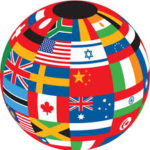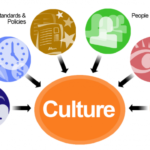
In today’s global village, cultural diversity is the biggest challenge to effective leadership and there is enough consensus in leadership literature that ‘conflict based on cultural differences in global organizations is the most challenging aspect of a global leader’s portfolio’.
Global leadership and cultural diversity

In their book ‘International Business: The Challenges of Globalization’ Wild and Wild write at learnt about how cultural diversity is now one of the key challenges facing global leadership. Cultural competency is no longer an added advantage but rather an essential skill for global leadership as they try to navigate through a culturally-diverse global business environment.
Today’s global leaders must be equipped with the “cultural intelligence” to be able to understand the relevance of differences in religion, values, norms, and languages in different parts of the world. These simple things if not well understood and applied can lead to disastrous consequences. For example, while in Saudi Arabia or any of the Islamic Kingdoms/Republics, understanding the difference between ‘Halaal’ (permitted) and ‘Haram’ (forbidden) can save your business or even your life.

Global leaders now need to become “global citizens” in order to succeed in a culturally diverse business world and to succeed, leaders need to craft a cross-cultural communication strategy. Companies must actively train staff to be global citizens, it is no longer a skill that can be picked up along the way.
As a leader in today’s world, you will need to define your own cultural style (just like your fashion style) in several core areas, including, strategy, reasoning, and personal communication. This will assist you as a global leader in addressing some of the cross-cultural dilemmas that are part of the global business environment.

Conclusion
Cultural intelligence is a complex matrix that involves knowing and understanding the nuances of other cultures, awareness of one’s inner culture as well as national culture. It also involves self-awareness as well as cultural agility (flexibility).
More than ever, it is important for global leaders to be able to manage broad cultural differences and avoid cultural egocentrism and cultural generalities.
Global leaders need to have the knowledge of other cultures and be able to practically apply such knowledge to the advantage of their organizations. This inter-culturally competence is not negotiable in today’s business world.